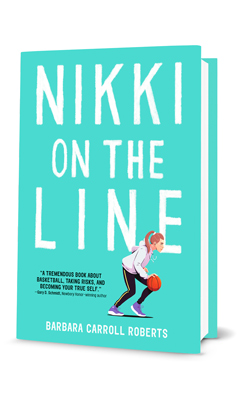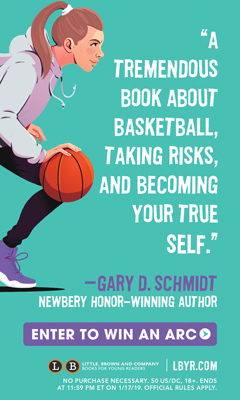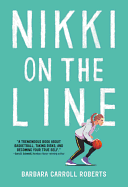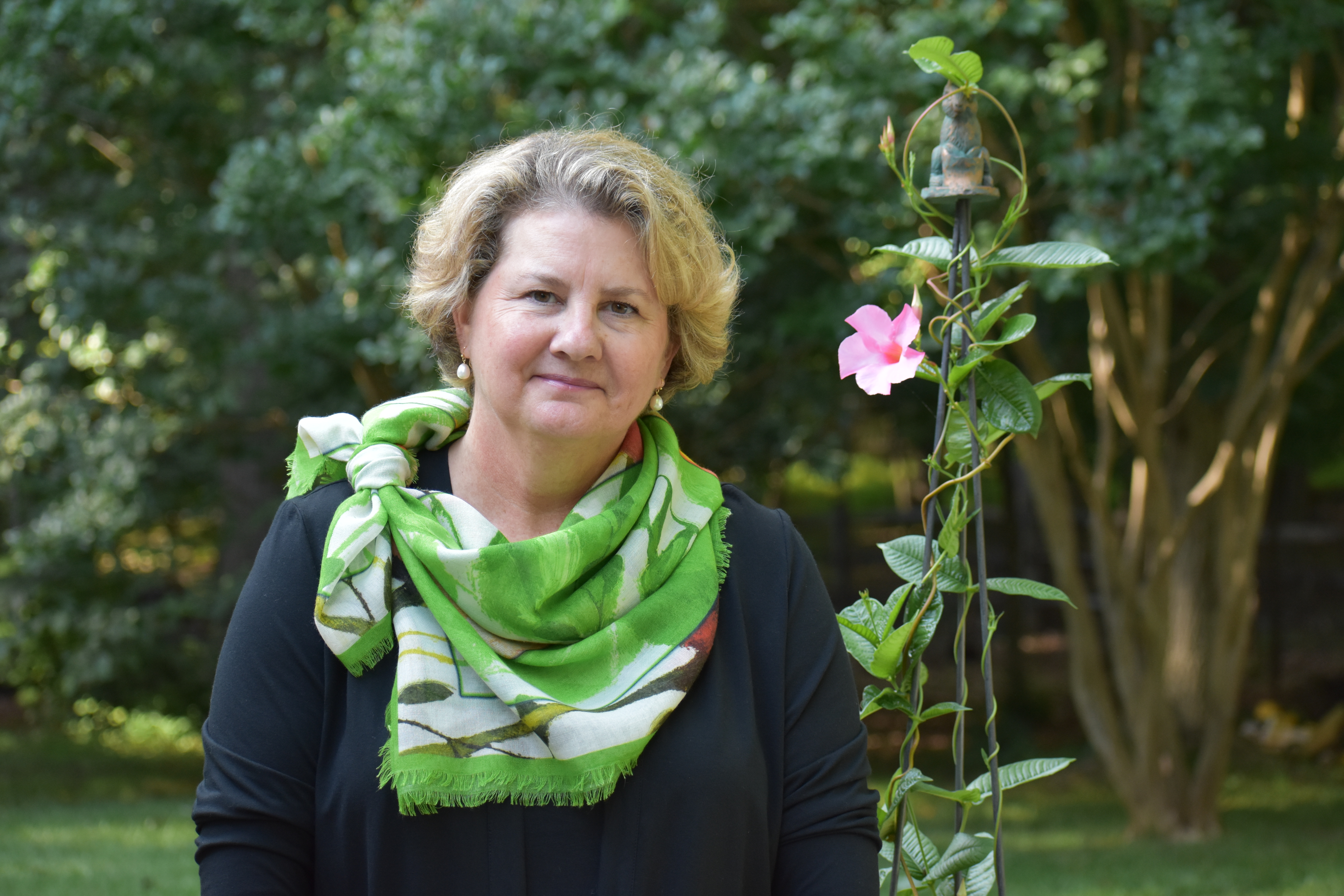Nikki on the Line
by Barbara Carroll Roberts
With her debut novel, Nikki on the Line, Barbara Carroll Roberts masterfully intertwines themes familiar to most middle grade readers--self-esteem, identity, changing friendships, risk-taking--into a thoroughly absorbing narrative.
When she's playing basketball well, 13-year-old Nikki is truly in the zone: "Feeling the energy zing up from my feet all the way out through my fingertips, the ball sailing from my hand, the swish of the net...." Pure joy. This year, she's desperate to play on the prestigious Northern Virginia Action club basketball team. After Nikki makes the tryout cuts, her loving but harried single mom learns how much the club will cost and tells her no. Nikki promises to take care of her little brother Sam after school to cut down on childcare costs, to keep her grades up and continue to do her regular chores. Her mom relents, but once Nikki's playing on the team, none of this is as easy as she had hoped, not even her beloved basketball.
Practices are grueling and for the first time ever, Nikki and best friend Adria are not the best players on the team. One of their teammates, Kate, is 6'2" and is already being scouted for colleges. JJ, another player, is brutally aggressive, with a sideline mother encouraging her daughter to bulldoze other players, barking, "Intense, JJ. Get intense." JJ plays mind games with Nikki, who has one green and one brown eye, by getting in her face mid-play and asking, "What's wrong with your eyes?" Although she's always been a confident girl, Nikki begins to doubt herself. Not surprisingly, her painful self-consciousness leads to faltering play on the court.
While Nikki struggles to stay on top of her game, her friendship with Adria, her relationship with her mom, her babysitting and her schoolwork all begin to suffer. To make matters worse, her science teacher assigns the class a project on genetics. Nikki is mortified because, "of all the embarrassing things Mom had ever done to Sam and me--or ever would do to us--nothing could be more embarrassing than giving us dads who were sperm donors." (On the bright side, the assignment ends up bringing her closer to the cute new boy, Booker, who also doesn't live with both biological parents.)
Meanwhile, Adria and Kate have started spending time together, taking additional training classes that Nikki's mom can't afford. And when Kate's overbearing dad, who constantly pushes Kate to show up her teammates, comments that Nikki is a "black hole on the basketball court" who "doesn't belong in this league," Nikki falls apart.
It takes all the resourcefulness this spunky eighth grader has to find her way out of her own personal black hole. The turnaround begins when she finally grasps what her coach means every time he quotes former UCLA basketball coach John Wooden: "Do not let what you cannot do interfere with what you can do." After a less-than-impressive report card and an injury to her brother on her watch, Nikki begs her mother to give her another chance to keep playing in the league. "I'm trying to do something I've never done before. You have to give me a chance to show Coach Duval that I won't let what I can't do stop me from doing what I can."
Nikki is instantly recognizable as an everygirl for the 21st century. She is funny, thoughtful and awkward. She is clever and kind. She is scared of messing up--so scared, in fact, that she does mess up. But Nikki is also fortunate enough to have a rock-solid foundation of love and support, even if her librarian mother is perpetually baffled at her interest and ability in basketball, her brother is a noisy nuisance and her father is a "paper dad," or, as she tells Booker, "the guy who was the, um, the, you know, donor."
Young readers who despair of ever being understood will follow with avid interest as Nikki does her part to help her mother understand. In the process, she comes to terms with her limitations--according to genetics, for one thing, she will never be the tallest on her team--and begins to embrace her gifts. Readers who know what it's like to strive for something almost out of reach, fail and try again, will have nothing but respect and affection for Nikki. And readers of any age who thought they had no interest in basketball may find themselves utterly fascinated by the sport. Roberts was clearly in the zone when she wrote the exceptional Nikki on the Line. --Emilie Coulter








